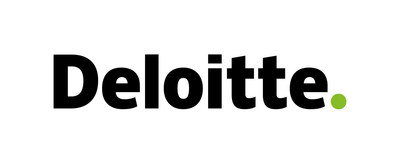Deloitte Future of Cyber Survey Indicates That Many Organizations Aren’t Actually Positioned to Succeed in Tackling Cyber Demands
Press Releases
Mar 04, 2019
NEW YORK, March 4, 2019 /PRNewswire/ — According to a new Deloitte 2019 Future of Cyber survey, there are notable gaps in organizations’ abilities to meet cybersecurity demands for the future. The report highlights the dissonance between what organizations aspire to versus the current reality of their cyber posture. Results from the survey indicate that many cyber organizations are challenged by their ability to help better prioritize cyber risk across the enterprise (16 percent), followed closely behind by lack of management alignment on priorities and adequate funding, each at 15 percent.

Today’s cyber leaders are focused on digital transformation as a catalyst for change for both the greater enterprise and their cyber agendas. With acknowledgement that cyber is everywhere comes the need for organizational leadership to get real about how they intend to manage the pervasiveness of cyber in the new era of cloud, internet of things (IoT), artificial intelligence (AI), and data integrity. Deloitte Cyber surveyed 500 C-suite executives who have responsibility for cyber security to explore their challenges in leading the transformation from legacy environments, disconnected data sources, identity systems, and governance issues, to name a few.
“This is really the evidence to suggest there is a real gap that must be bridged,” said Irfan Saif, cyber innovation leader and principal in Deloitte Risk and Financial Advisory at Deloitte & Touche LLP. “With finite budgets and resources, and lack of prioritization by executive management, organizations are going to be tested to keep up with the cyber demands of digital transformation.”
Findings of the Future of Cyber survey include:
- 43 percent of surveyed CISOs indicated they report directly to the CEO. That finding is consistent across the total survey population where 32 percent of respondents indicated the CISO reported to the CEO, with only 19 percent indicating that the role reported to the CIO. In Deloitte’s experience facilitating hundreds of CISO transformation labs over the past five years and through informal collection of data, nearly 80 percent of CISOs report to a CIO or CSO. This indication that CISOs are, in fact, directly reporting to a CEO is quite encouraging but counter to Deloitte’s experience.
- Half of organizations (49 percent) have cybersecurity on their board agenda at least quarterly. However, at some level, it can be viewed that half of boards are not discussing cyber as often as they likely should be. After all, only 4 percent of respondents say cybersecurity is on the agenda once a month.
- While organizations are prioritizing digital transformation initiatives, only 14 percent of cyber budgets are allocated to securing transformation efforts.
- Less than 20 percent of organizations have security liaisons embedded within business units to foster greater collaboration, innovation and security.
- Organizations are turning to third parties to manage certain facets of their cyber operations. According to 65 percent of the CISOs surveyed, 21-30 percent of total cyber operations is outsourced, with nearly half (48 percent) of CISOs selecting insider threat detection as a top function that they turn to third parties to manage.
- There’s a disconnect between the majority (85 percent) of the survey respondents who indicate that they are using Agile/DevOps in application development and then ranking DevSecOps lowest (11 percent) on the cyber defense priorities and investments areas, which may explain why 90 percent of organizations surveyed experienced disclosures of sensitive production data within the past year.
- Data integrity (35 percent) was the top ranked cybersecurity threat survey respondents were most concerned about followed by unintended actions of well-meaning employees (32 percent) resulting in a negative event and technical vulnerabilities (31 percent).
“There’s a whole new way of thinking that has to occur with how organizations are going to achieve their business outcomes, and that is with a cyber everywhere mindset. What surprised me most about the survey findings was how nascent this concept is in adoption,” said Emily Mossburg, advise and implement leader for cyber risk services and principal in Deloitte & Touche LLP. “As organizations embrace digital transformation and are shifting to the cloud, simplifying technology infrastructure and outsourcing workload to third parties, they are also expanding their cyber risk. Cyber will become more prolific across systems, platforms, and people — employees, customers, and partners — and enterprise leadership has to correlate all of that to stay ahead of the adversary and protect the organization’s most valuable assets.”
Deloitte Cyber will be at the RSA Conference March 4–7, 2019 in San Francisco to discuss new approaches to address cyber threats and explore opportunities offered by cyber innovation and new technologies and to share the findings of the Future of Cyber survey.
Methodology
The Deloitte 2019 Future of Cyber Survey was conducted in conjunction with Wakefield Research among 500 C-level executives who oversee cybersecurity at companies with $500 million or more in annual revenue including 100 CISOs, 100 CSOs, 100 CTOs, 100 CIOs and 100 CROs. The survey took place between January 9, 2019 and January 25, 2019 using an online survey tool.
About Deloitte
Deloitte provides industry-leading audit, consulting, tax and advisory services to many of the world’s most admired brands, including more than 85 percent of the Fortune 500 and more than 6,000 private and middle market companies. Our people work across more than 20 industry sectors to make an impact that matters — delivering measurable and lasting results that help reinforce public trust in our capital markets, inspire clients to see challenges as opportunities to transform and thrive, and help lead the way toward a stronger economy and a healthy society. Deloitte is proud to be part of the largest global professional services network serving our clients in the markets that are most important to them.
Deloitte refers to one or more of Deloitte Touche Tohmatsu Limited, a UK private company limited by guarantee (“DTTL”), its network of member firms, and their related entities. DTTL and each of its member firms are legally separate and independent entities. DTTL (also referred to as “Deloitte Global”) does not provide services to clients. In the United States, Deloitte refers to one or more of the US member firms of DTTL, their related entities that operate using the “Deloitte” name in the United States and their respective affiliates. Certain services may not be available to attest clients under the rules and regulations of public accounting. Please see www.deloitte.com/about to learn more about our global network of member firms.
![]() View original content to download multimedia:http://www.prnewswire.com/news-releases/deloitte-future-of-cyber-survey-indicates-that-many-organizations-arent-actually-positioned-to-succeed-in-tackling-cyber-demands-300805749.html
View original content to download multimedia:http://www.prnewswire.com/news-releases/deloitte-future-of-cyber-survey-indicates-that-many-organizations-arent-actually-positioned-to-succeed-in-tackling-cyber-demands-300805749.html
SOURCE Deloitte



